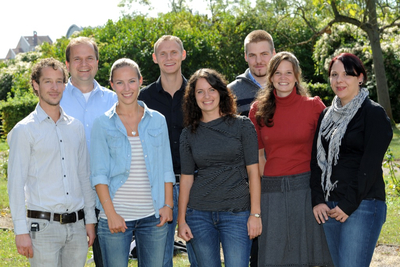SP 8
The role of anti-apoptotic Bcl-2 proteins for colorectal cancer development and progression
The capability to evade apoptosis and other types of cell death is considered to be one of the hallmarks of cancer development. In colorectal cancer, disruption of apoptosis signaling is frequently detected. Moreover, anti-apoptotic signaling contributes to resistance of cancer cells towards treatment, such as chemo- or radiotherapy.
The focus of the subproject, which is ongoing since 2012, is to analyze the role of anti-apoptotic Bcl-2 proteins for the development, progression and metastases of colorectal cancer. Bcl-2 proteins are mainly known due to their pivotal role in the regulation of the mitochondrial death pathway. Besides their effects on mitochondrial activation, they also regulate cell cycle and proliferation. In colorectal cancer, changes in the expression levels of Bcl-2 proteins have been described. However, only little is known about their pathophysiological role in cancer progression and for the individual outcome of cancer patients.
We investigate expression patterns of anti-apoptotic Bcl-2 proteins and their prognostic value in human colorectal cancer tissue samples including circulating tumor cells. Primary tumors as well as lymph node and liver metastases are analysed to map Bcl-2 protein expression in tumor samples. In addition, microRNA profiling in sera and tissue samples of colorectal cancer patients should help to identify miRNAs relevant for the regulation of Bcl-2 proteins.
Moreover, we investigate invasion and metastases of human colorectal cancer cell lines in vitro and in vivo in xenograft models after manipulation of anti-apoptotic Bcl-2 proteins.
In previous studies, we have shown a more complex picture of anti-apoptotic Bcl-2 proteins in carcinogenesis. We have shown that a knockout of Mcl-1 in the murine liver on the one hand triggers apoptosis and liver injury, but on the other hand results in increased proliferation of liver cells and the spontaneous development of hepatocellular carcinoma. In this project, we aim to analyze colorectal cancer development and progression in intestine-specific, Bcl-2 knockout mouse models.
In conclusion, the project aims to specify the role of anti-apoptotic Bcl-2 proteins in the development and progression of colorectal cancer. This may help to identify new targets for the treatment of colorectal cancer patients.
Project-related key publications:


